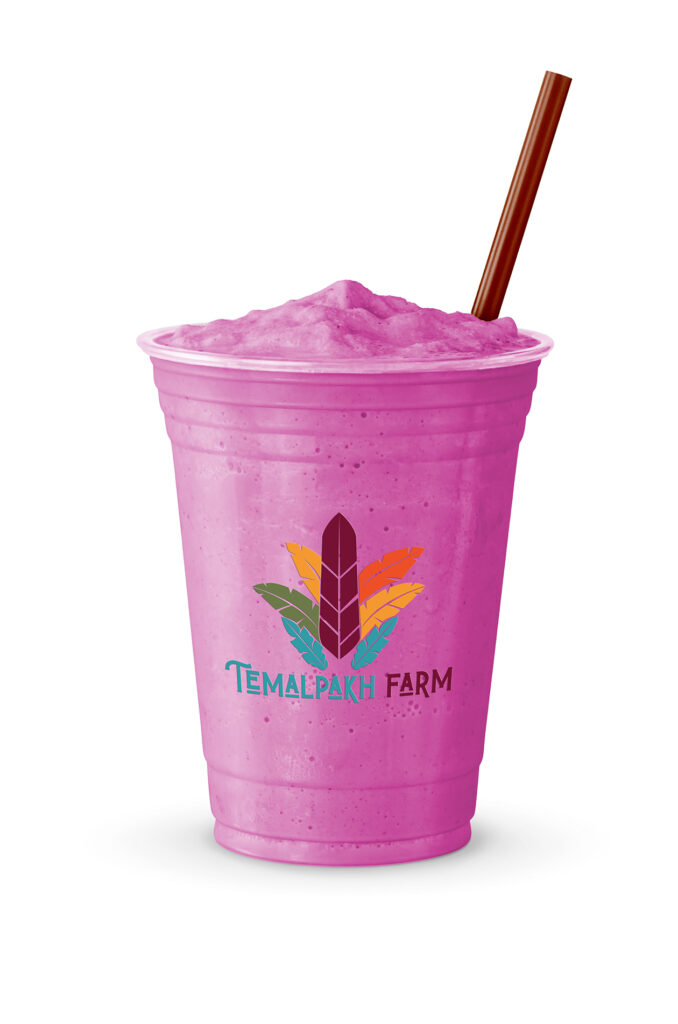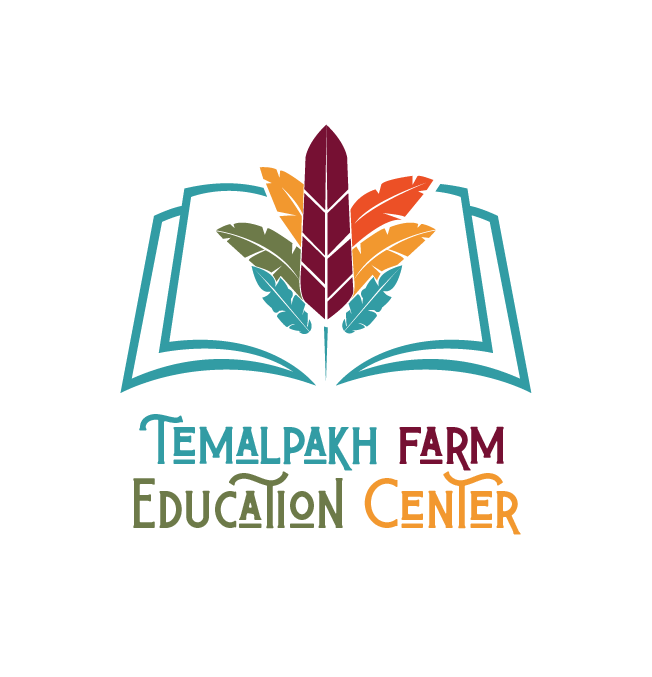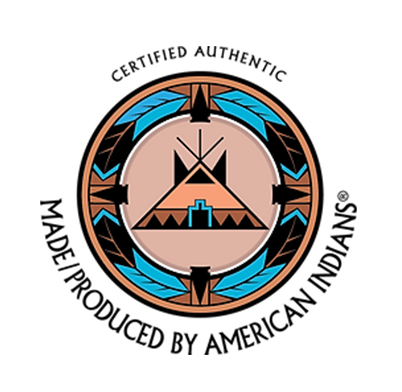Good for you.
Good for the planet.
Good for you.
Good for the planet.
Temalpakh Farm Education Center Tours
At Temalpakh Farm Education Center, our unique mission is to ‘raise consciousness and inspire the community regarding the effects of climate change.’
We also want to create a mindset of “stewardship” for future generations. The Cahuilla Indians nurtured the land. They only used what was needed to live a sustainable life. They gave back to the land for the future of their children and future generations.
Our educational programs are designed to engage students and adults in exploring agriculture, health, and environmental responsibility, all of which are critical components of our mission to raise consciousness and inspire the community regarding the effects of climate change. Through these programs, you will also learn about our Cahuilla history and how Native Americans take pride in their stewardship to maintain our environment. Climate change impacts sustainable living and our future, and our programs aim to equip participants with the knowledge and skills to address these challenges.
Temalpakh means “from the earth.” Our educational programs aim to reverse climate change damage where we can, build knowledge of the Cahuilla Indians’ history and contributions to sustainability, and create a new generation of earth stewards.
Basic Tour
Basic Tour
Topic: A View of Temalpakh Farm
Tour Time: 1 hour
Days: Wednesday mornings, 9:00 am – 10:15 am and 11:00 am – 12:15 pm*
Focus: An overview of Temalpakh Farm
Our introductory tour offers a 360-degree view of Temalpakh Farm on 7 Feathers Hill. You’ll explore our demonstration garden, which contains various organic produce. A walk through the pollinator corridor will reveal the beauty of indigenous plants grown in the Coachella Valley. To top it off, you’ll return to Temalpakh Market, where you can shop for organic produce or purchase one of our delicious smoothies. It’s a learning experience like no other!
Basic Tours are limited to 12 attendees. For custom tours, please contact Adrienne Edmondson: [email protected]
Tour Cost: $15.00 per person
Additional Tour Activities: $5 each
*Depending on the farm activities, afternoon time slots may become available.


Additional Tour Activities
Smoothie Tasting
Temalpakh Market serves a variety of wholesome smoothies. We have eight smoothies prepared with organic fruits and vegetables, almond or coconut milk, or coffee! Decide which one you like the best and get one for the road.
Date Tasting
Enjoy an adventure in “date tasting” our organic date—a presentation of the dates and ways to use the dates in a variety of foods. See if you can identify the flavor and texture of the various dates. Temalpakh Farm is known for its organic dates. The farm grows four types of dates. They are:
- Barhi dates—These are the first dates we harvest, and we have minimal time to decide when they are available. We offer them in two stages: yellow and ripe. Yellow Barhi lends a semi-sweet taste with an apple-like crunch. Ripe brown Barhi is sweet and soft with a caramel-like taste.
- Medjool dates—One of the popular dates is the Medjool date. We grow them in jumbo size. They are sweet and soft and are used in cooking and baking. They are even used to sweeten our smoothies.
- Zahidi dates – are firmer in texture than Medjool, light brown, semi-dry, and have a nutty and caramel flavor.
- Deglet Noor Dates – is also Firmer in texture, chewier, and less sweet than the Medjool date; it has a nice sweetness, is not overpowering, and is often used in cooking and baking.
Note: All dates are high in magnesium and iron and are an excellent alternative for people with diabetes as they regulate blood sugar.
Special Events
Nestled below the beautiful San Jacinto mountains on the Augustine Band of Cahuilla Indians’ reservation, Temalpakh Farm is a unique, serene setting for your next event. Let us delight your guests with an exclusive farm-to-table experience amid the date palms, organic produce and rich Cahuilla history … a one-of-a-kind experience! Events are designed to your specifications and the fee is based on your requirements and needs.
Contact: Lindsay Grant – [email protected]

School Educational Programs
The school educational programs are designed to support the current environmental studies being conducted in the classroom. They can be seen as an addition to the curricula through a field trip. The programs involve experiments, observations, explorations, creativity, and classroom discussion.
The cost for all school programs is $20.00 per student, and one chaperone is complimentary for every ten students.
Pollination and Pollinators
Class Time: 3 hours
Grades: Pre-K through 5
Days: Tuesday and Thursday, 9:00 – 12:00 pm and 1:00 – 4:00 pm
Focus: Engage in an interactive learning experience to understand and explore the stages of development for butterflies and ladybugs, garden predators and pests, where insects live, and the life of a flower.
Objectives: Discover the fascinating life cycles and stages of development of butterflies and ladybugs. Understand what is needed during each stage. Compare the life cycle of the butterfly and ladybug to the human life cycle and identify what is needed throughout life. Discover the benefits and problems that bugs bring to the garden. Learn the definitions of symbiosis (helpful bugs) and parasitism (harmful bugs). Identify ways to prevent these pests and how to encourage the beneficial ones. This will be achieved through interactive discussions, hands-on activities, and group work. This also includes a walk through the “Pollinators Corridor” and exploring our demonstration garden.
Topics Covered:
- Insect Cycles
- Life in the Farm: Predators and Pest
- Flower-Pollinator, matching
- Make A Flower
- Planning a Pollinator Garden
- Insect Habitat Exploration
- Wildflower Exploration
- Work Like a Bee
Water
Class Time: 3 hours
Grades: Pre-K through 5
Days: Tuesday and Thursday, 9:00 – 12:00 pm and 1:00 – 4:00 pm
Focus: Define and explain the water cycle. Discuss how clouds are formed, what too much or too little water does to our plants, and how it affects the soil.
Objectives: Demonstrate how the water cycle works, how soil drains, how water is stored underground, how water runs off different soil types, how the atmosphere (wind) affects the soil and water, and why water is one of the earth’s most crucial natural resources.
Topics Covered:
- Water in a Bag
- Soil Water Percolation and Drainage
- Aquifer Representation
- Soil – Water Retention
- Soil Erosion from Water and Wind
- Cloud in a Bottle Model
- Water Awareness
Photosynthesis, Solar, and Energy
Class Time: 3 hours
Grades: Pre-K through 5
Days: Tuesday and Thursday, 9:00 – 12:00 pm and 1:00 – 4:00 pm
Focus: Provide a working knowledge of solar energy. Also, gain insight into the sun itself. Allows the students to learn about our solar system and what energy means. Understand how plants and humans photosynthesize energy in their growth cycle.
Objectives: Learn how to capture and use solar energy. How does photosynthesis work? Understand how plants use sunlight. Discuss how solar energy can be used.
Topics Covered:
- Discovering Solar Energy
- Photosynthesis Demonstration
- Plant Parts and Photosynthesis
- Renewable and Nonrenewable Energy
- Solar Car
- Solar Oven
- Sun Tea
- Where is the Energy Coming From
Soil and Farming
Class Time: 3 hours
Grades: Pre-K through 5
Days: Tuesday and Thursday, 9:00 – 12:00 pm and 1:00 – 4:00 pm
Focus: Study the growth development of a seed. What experiences can affect a seed’s growth? Learn how to live healthily.
Objectives: Learn the seed process. How does a seed grow into a plant, what happens if it does not sprout, and how does this relate to our nutrition and health? Also, learn how some plant pigments are used as dyes.
Topics Covered:
- Seeds – Sprouting and Seed Coats (Seed Anatomy)
- Egg Carton Seed Starts
- Plant Parts
- Chia Slim
Nutrition
Class Time: 3 hours
Grades: Pre-K through 5
Days: Tuesday and Thursday, 9:00 – 12:00 pm and 1:00 – 4:00 pm
Focus: Understand how to eat healthily. Learn how the Cahuilla maintained a healthy diet in their environment and learned how to use what they could to survive with what they found around them.
Objectives: Learn the connection between your health and plants. Understand what we can and can’t control in our gardens. What does a plant need to grow healthy? Create a “healthy habits checklist”.
Topics Covered:
- Plant Health and Your Own Needs
- Rainbow of Color
- Cahuilla Food and Nutrition
- Food Preservation
- Read Your Labels
- Model Digestion System – “making poop”
- Herbal Tea – growing and sampling
Native American Crafts (Coming Soon)
Basketry
Basket making, also known as basket weaving or basket making, is essential to Native American Culture. Baskets, made of natural fibers such as long grasses, bark, roots, and other plant materials, were often used to store food and carry goods.
This presentation will focus on an overview of the history of baskets and the opportunity to participate in weaving a small basket.
Beading
Beadwork has a steep historical place in Native American culture. In 1990, the Indian Arts and Crafts Act made it illegal for anyone other than an American Indian to stake claim to beaded products. This presentation will provide you with the history of beading, what it represents in history, and how to beard
Jewelry Making
Native American jewelry is a beautiful art with history and tradition. It uses many symbols. Learn the history, symbolism, and art of Native American Jewelry making through the eyes of a Native American elder or expert.

Native Cooking demonstration – “Cooking the Native Way: Chia Café Collective”
Native Americans have survived on the land for many years. And, with that being said, I have lived by a rule to ensure the land will be here for generations to come. They only took what they needed. Their relationship with the Earth demonstrates commitment and love for the Earth and their people.
This presentation will demonstrate how to use plants and create healthy foods in the traditional Native American way. An experienced Chia Café Member teaches the presentation, sharing their knowledge and skills to inspire you to incorporate these practices into your cooking for a healthier and more sustainable lifestyle.
Note: All of the above presentations are led by experienced tribal leaders or experts recognized by tribes in the Coachella Valley. The cost of the above programs will depend on the materials to be used by the instructor.
Our educational programs are designed to provide a hands-on learning experience tailored to the current season. This ensures that you, as a participant, are actively engaged in the farming process and understand the challenges and opportunities associated with each season. It’s not just learning; it’s doing!



